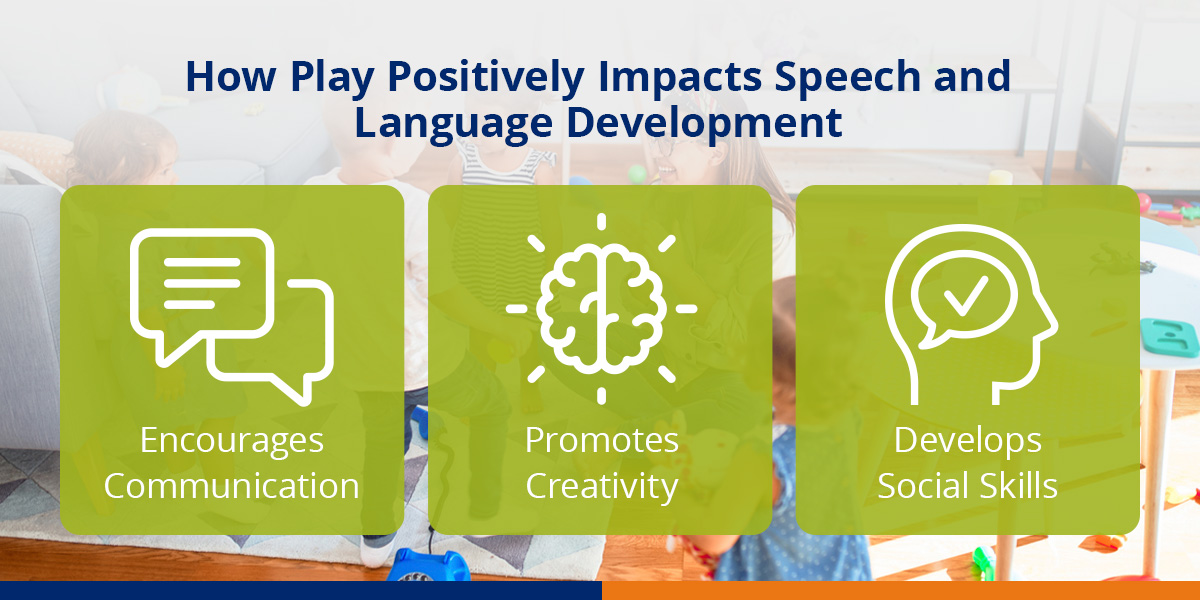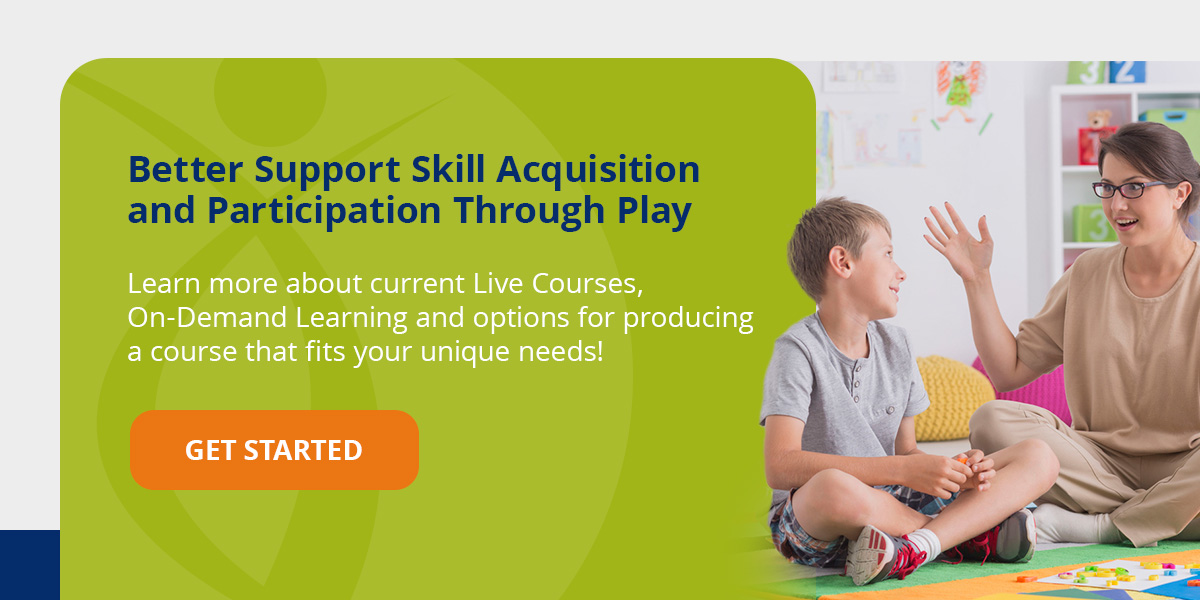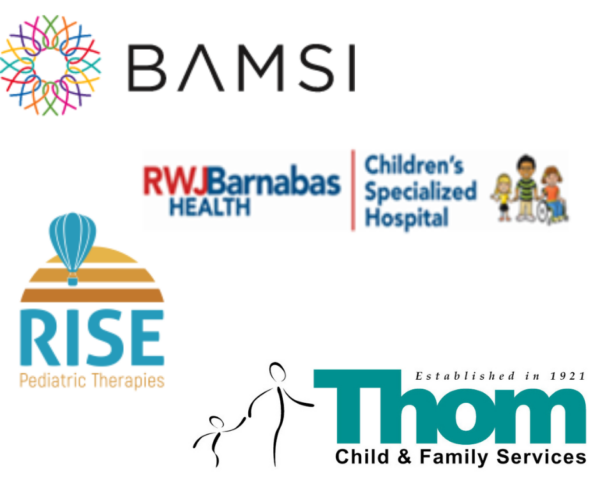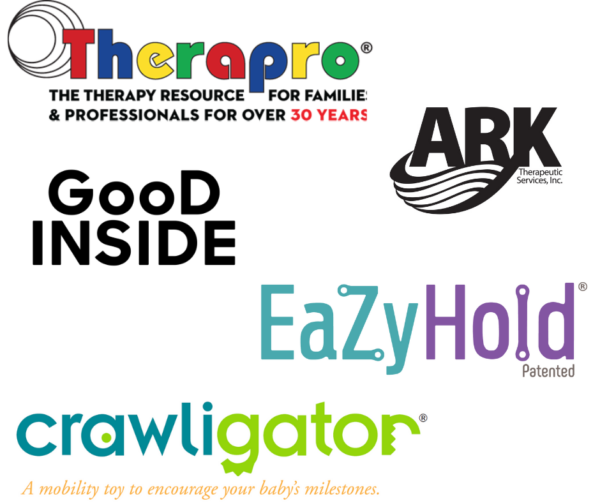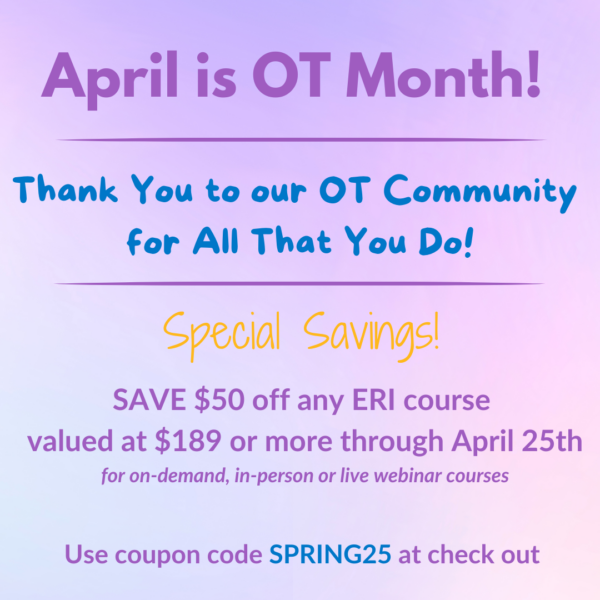 We Love This Time of Year!
We Love This Time of Year!
April is OT Month and ERI is thrilled to celebrate this vital profession. We are honored to serve our community of Occupational Therapists who help both children and adults flourish in their overall well-being and independence through engaging them in meaningful activities. Thank you for all that you do!
Meet ERI’s OT Faculty!
We are so happy to highlight and share our amazing OT faculty with you!
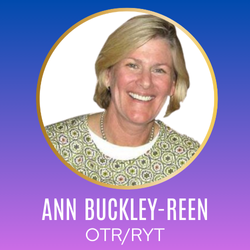 Anne Buckley-Reen, OTR, RYT has taught with ERI since 2005. She has been a practicing pediatric therapist for 30+ years and a pioneer in the use of yoga as a therapeutic modality for nearly 20 years. Her work with yoga has been researched, published and cited in numerous journal articles and is the foundation for a researched preparatory program widely used in NYC schools special needs classrooms.
Anne Buckley-Reen, OTR, RYT has taught with ERI since 2005. She has been a practicing pediatric therapist for 30+ years and a pioneer in the use of yoga as a therapeutic modality for nearly 20 years. Her work with yoga has been researched, published and cited in numerous journal articles and is the foundation for a researched preparatory program widely used in NYC schools special needs classrooms.
Motor Issues in Autism is Anne’s popular ERI course and teaches therapists how to more effectively expand engagement in clients with ASD while answering questions about self-stimulatory behaviors, preservation, and reactive or self-directed behaviors.
 Janine Wiskind, OTR/L, MS has been teaching as an ERI faculty member for the past 12 years. As a pediatric occupational therapist, beginning her career in brain injury, Janine cultivated her specific concentration in vision, which has, in turn, led her to specialize in primitive reflex integration. Working for inpatient rehab, outpatient, home health, the school system, and now within her own clinic has provided Janine with an extensive opportunity to work with a variety of pediatric populations and has led to her diverse array of expertise.
Janine Wiskind, OTR/L, MS has been teaching as an ERI faculty member for the past 12 years. As a pediatric occupational therapist, beginning her career in brain injury, Janine cultivated her specific concentration in vision, which has, in turn, led her to specialize in primitive reflex integration. Working for inpatient rehab, outpatient, home health, the school system, and now within her own clinic has provided Janine with an extensive opportunity to work with a variety of pediatric populations and has led to her diverse array of expertise.
Janine’s well-known course with ERI is Primitive Reflexes: Strategies to Promote Integration – Strengthening Foundational Skills and teaches therapists how to effectively evaluate primitive reflexes and utilize a functional and play-based approach to primitive reflex integration. Registration for this course is now open:
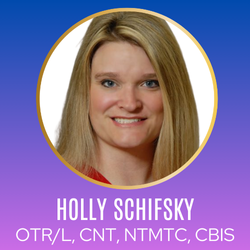 Holly Schifsky, OTR/L, CNT, NTMTC, CBIS has worked with ERI for over 8 years. She has been in pediatrics for the past 28 years with the past 17 years in a level IV NICU. She is a Certified Neonatal Therapist, Certified Neonatal Touch and Massage Therapist, Certified Brain Injury therapist, a member of National Association of Neonatal Therapists, and has completed 6-month mentorship in infant/child NDT.
Holly Schifsky, OTR/L, CNT, NTMTC, CBIS has worked with ERI for over 8 years. She has been in pediatrics for the past 28 years with the past 17 years in a level IV NICU. She is a Certified Neonatal Therapist, Certified Neonatal Touch and Massage Therapist, Certified Brain Injury therapist, a member of National Association of Neonatal Therapists, and has completed 6-month mentorship in infant/child NDT.
Holly has worked within the NICU and NICU follow-up clinic to maximize patient and family outcomes for the most complex premature and medically-fragile term infant. Registration is open for Holly’s upcoming courses:
- April 25 and 26 – Baby Beats and Breaths
- May 9 – Breathe Baby, Breathe
- July 18 and 19 – Babies’ Bodies and Brains
- August 8 and 9 – Baby Beats and Breaths
- September 20 and 21 – Babies’ Bodies and Brains IN-PERSON: Chattanooga, TN
- NEW COURSE! October 6, 8, 13 and 15 – Supporting Infant Movement Development in the NICU
- On-Demand Courses
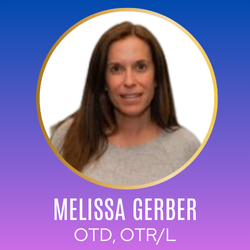 Melissa Gerber, OTD, OTR/L has been with ERI for the past 8 years. Dr. Gerber is a seasoned and respected clinician with extensive experience in pediatrics. She began her career in Adult/Pediatric inpatient/outpatient rehabilitation and acute care. Currently, Dr. Gerber has been working for the Great Neck Public Schools for the past 23 years. She is president of 4MYKIDSOT, a private practice where she provides therapy and evaluations.
Melissa Gerber, OTD, OTR/L has been with ERI for the past 8 years. Dr. Gerber is a seasoned and respected clinician with extensive experience in pediatrics. She began her career in Adult/Pediatric inpatient/outpatient rehabilitation and acute care. Currently, Dr. Gerber has been working for the Great Neck Public Schools for the past 23 years. She is president of 4MYKIDSOT, a private practice where she provides therapy and evaluations.
Dr. Gerber is enthusiastic to share her experiences and provide strategies that can be incorporated immediately. She is also affiliated with Puzzle Art Therapy, and enjoys sharing this program. Learn with Dr. Gerber at her scheduled courses this year:
- June 9, 10 and 14 – Awareness of Self in Space
- October 7, 9 and 14 – Functionally Assessing and Treating Visual Processing
- October 20 and 22 – Developmental Coordination Disorder
- On-Demand Courses
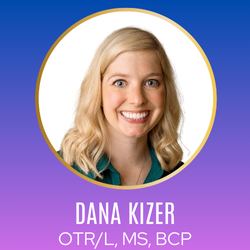 Dana Kizer, OTR/L, MS, BCP has a special interest in feeding and sensory processing. Dana has worked in a variety of pediatric settings including a pediatric hospital, specialty clinic, private practice, and home health. She has presented on feeding therapy and interventions nationally and across virtual platforms. Dana is a published author on the subject of pediatric feeding disorders and currently volunteers her time with Feeding Matters by serving on the Family Advisory Council to help families navigate the complex world of pediatric feeding disorders.
Dana Kizer, OTR/L, MS, BCP has a special interest in feeding and sensory processing. Dana has worked in a variety of pediatric settings including a pediatric hospital, specialty clinic, private practice, and home health. She has presented on feeding therapy and interventions nationally and across virtual platforms. Dana is a published author on the subject of pediatric feeding disorders and currently volunteers her time with Feeding Matters by serving on the Family Advisory Council to help families navigate the complex world of pediatric feeding disorders.
Dana brings a family perspective to her treatments and teaching experiences as her initial experience with feeding therapy occurred when she would accompany her younger brother to his feeding therapy appointments. She has seen first-hand the difference therapy can make in the lives of patients and their families. Learn with Dana as she co-hosts these upcoming courses:
- August 16 and 17 – Feeding Challenges in Infants, Toddlers and Beyond
- September 13 and 14 – Torticollis-Beyond the Basics
- October 11 and 12 – Feeding Challenges in Infants, Toddlers and Beyond
- November 8 and 9 – Torticollis-Beyond the Basics
- On-Demand – Pediatric Feeding and Swallowing Disorders
- On-Demand – Demystifying Dysphagia
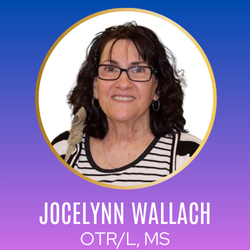 Jocelynn B. Wallach, OTR/L, MS, has worked as a pediatric therapist in hospitals, clinics, schools and early intervention programs for more than 40 years. She has lectured nationwide and taught graduate courses on normal development, sensory processing disorder, self-regulation and executive functioning. For the past 25 years, she has worked in the Westwood Public Schools and maintained her private practice/owner of “Capable Hands and Associates.”
Jocelynn B. Wallach, OTR/L, MS, has worked as a pediatric therapist in hospitals, clinics, schools and early intervention programs for more than 40 years. She has lectured nationwide and taught graduate courses on normal development, sensory processing disorder, self-regulation and executive functioning. For the past 25 years, she has worked in the Westwood Public Schools and maintained her private practice/owner of “Capable Hands and Associates.”
Join Jocelynn this summer to learn innovative methods to facilitate the development of self-regulation, attention, organization and memory, as well as environmental accommodations and modifications to improve the independence of students and patients:
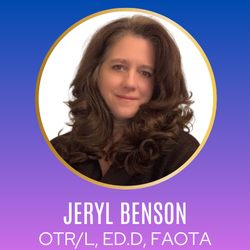 Jeryl Benson, OTR/L, Ed.D, FAOTA, has over 30 years working in pediatrics with extensive experience in school-based practice and as an educational consultant for schools and families. She is certified to administer the Sensory Integration and Praxis Test, is a certified infant massage instructor and is trained in Neurodevelopmental Treatment for children with cerebral palsy. As a full Professor at Duquesne University, she teaches both undergraduate and graduate coursework in the areas of lifespan occupational performance, neurological and sensorimotor function, occupation-based theory, and advanced practice. Her research interests include school-based practice, sensory processing and occupation. Her goal is to make an impact by researching best practices in an educational setting ensuring that children have the tools to fully participate in their educational, social, and community environments. Dr. Benson is currently the Editor of AOTA Children & Youth SIS Quarterly Practice Connections. Learn with Dr. Benson at her scheduled ERI courses this year:
Jeryl Benson, OTR/L, Ed.D, FAOTA, has over 30 years working in pediatrics with extensive experience in school-based practice and as an educational consultant for schools and families. She is certified to administer the Sensory Integration and Praxis Test, is a certified infant massage instructor and is trained in Neurodevelopmental Treatment for children with cerebral palsy. As a full Professor at Duquesne University, she teaches both undergraduate and graduate coursework in the areas of lifespan occupational performance, neurological and sensorimotor function, occupation-based theory, and advanced practice. Her research interests include school-based practice, sensory processing and occupation. Her goal is to make an impact by researching best practices in an educational setting ensuring that children have the tools to fully participate in their educational, social, and community environments. Dr. Benson is currently the Editor of AOTA Children & Youth SIS Quarterly Practice Connections. Learn with Dr. Benson at her scheduled ERI courses this year:
- July 24 and 25 – Cognition and Executive Function: Evidence-Based Assessment and Intervention Tools to Improve Participation
- NEW COURSE! October 21, 23, 28 and 30 – Complex Fine Motor Challenges-How to Assess and Intervene Effectively
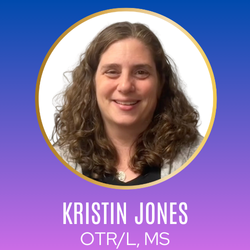 Kristin Jones, OTR/L, MS, a Neurodivergent Occupational Therapist, has been practicing OT for over 23 years. She has worked in multiple pediatric settings including early intervention, outpatient clinic, respectful feeding, and school based. The past 14 years she has been at the Community School of Davidson where she has taken the lead in guiding the administration and staff to become a trauma informed and neurodiversity affirming organization. Kristin has a passion for the latest research in brain development and translating this information for teachers to apply in the classroom. Her favorite quote is “if they could, they would” and believes it is our responsibility as educators to figure out the “why” to provide the most effective strategies for student success and to ensure the student feels understood. Join Kristin this fall for her popular course:
Kristin Jones, OTR/L, MS, a Neurodivergent Occupational Therapist, has been practicing OT for over 23 years. She has worked in multiple pediatric settings including early intervention, outpatient clinic, respectful feeding, and school based. The past 14 years she has been at the Community School of Davidson where she has taken the lead in guiding the administration and staff to become a trauma informed and neurodiversity affirming organization. Kristin has a passion for the latest research in brain development and translating this information for teachers to apply in the classroom. Her favorite quote is “if they could, they would” and believes it is our responsibility as educators to figure out the “why” to provide the most effective strategies for student success and to ensure the student feels understood. Join Kristin this fall for her popular course:

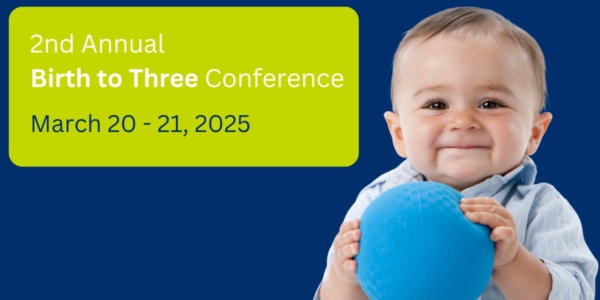
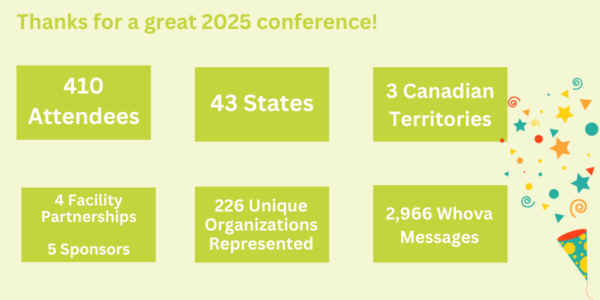
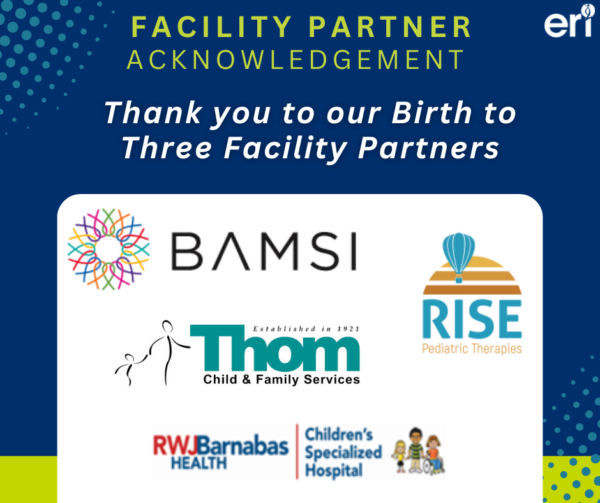
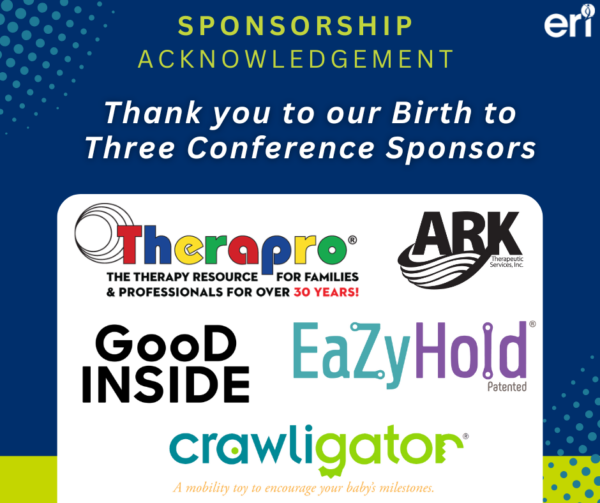
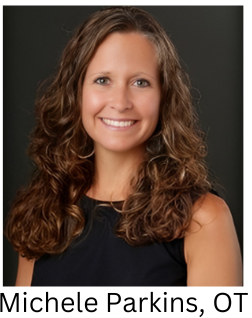
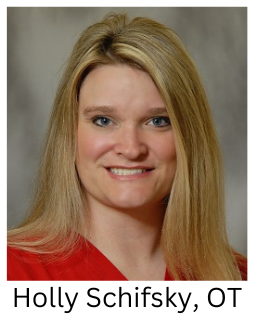
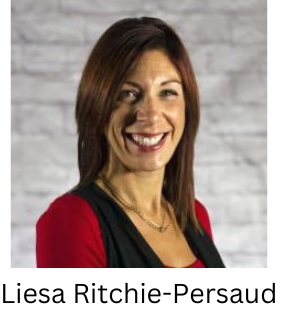
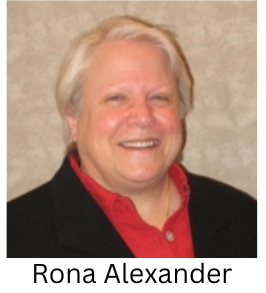
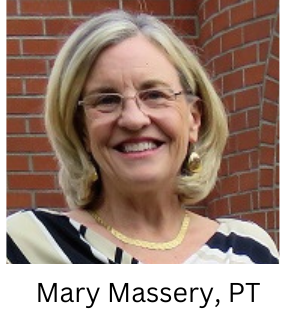
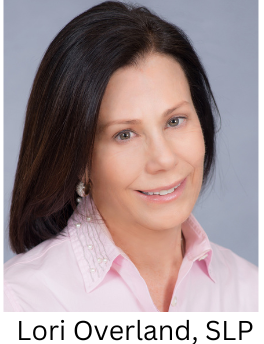
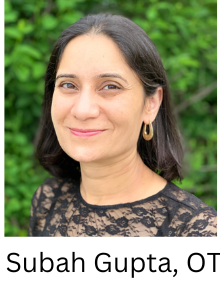 Subah Gupta
Subah Gupta What a treat to listen to special guest speaker,
What a treat to listen to special guest speaker, 
